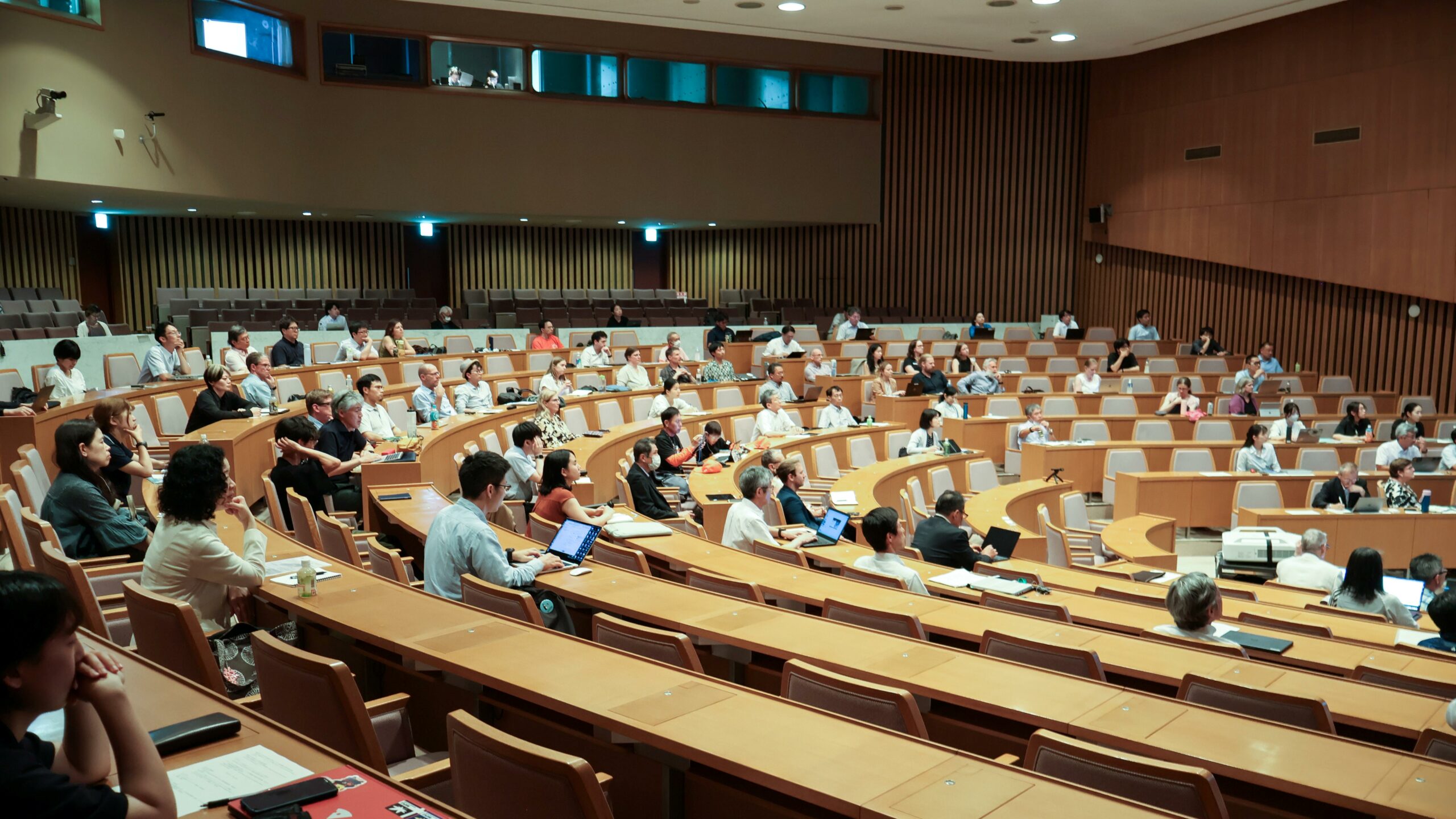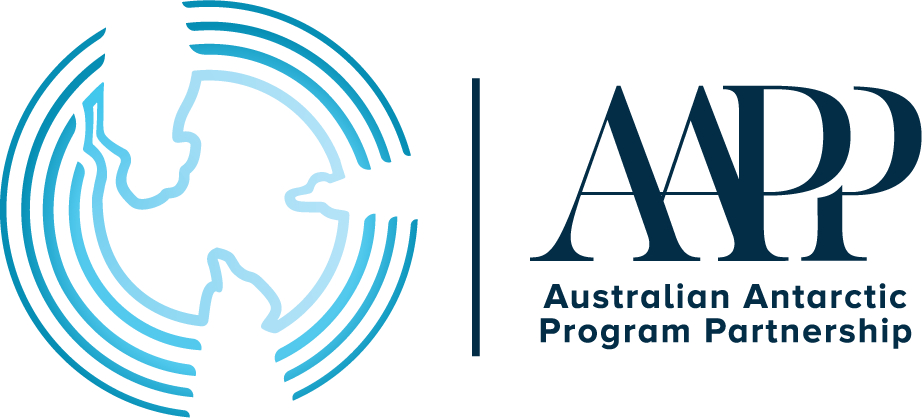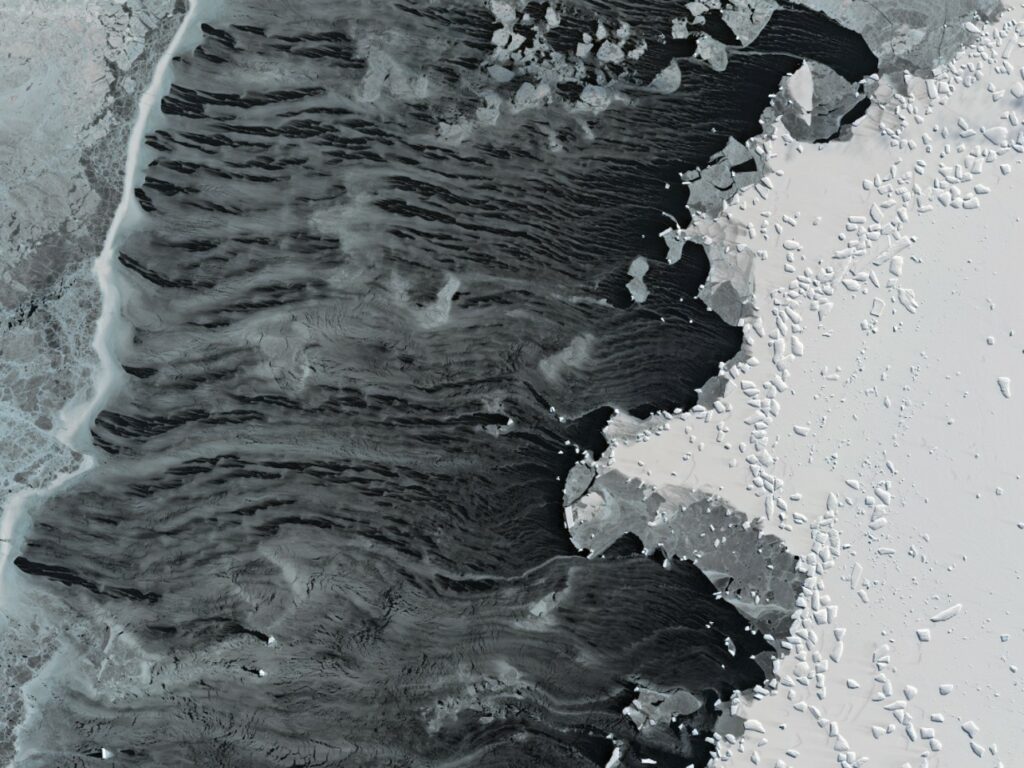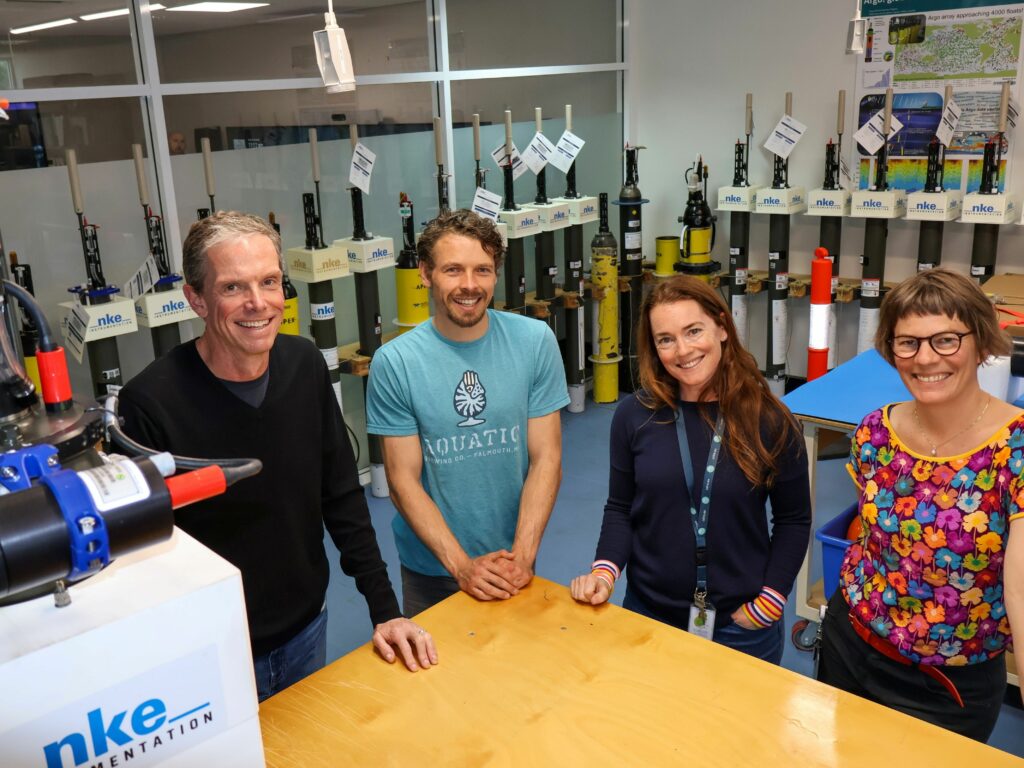Japanese-Australian collaboration valuable for Antarctic early career researchers
30 July 2025
About a hundred people attended a symposium in Tokyo on 28 July entitled “How will global warming change Antarctica and the Southern Ocean?”, hosted by the National Science Council of Japan.
At the symposium, two Hobart-based Antarctic researchers described the contribution of Japanese-Australian collaboration to their scientific careers.
Dr Abigail Smith from the Australian Antarctic Division (AAD) is a krill ecologist specialising in acoustic techniques.
Antarctic krill are major exporters of carbon from the atmosphere via phytoplankton into deep storage in the Southern Ocean, through their sinking faeces and shells, and daily vertical migration.
Her work aims to quantify how much these various processes contribute to carbon transport.
“Monitoring krill year-round and at depth is challenging. Some biogeochemical models assume half of zooplankton populations migrate from the deep to surface waters each day, but we don’t really know how that varies seasonally.”
“We currently lack suitable observations to measure the contribution of vertical migration. None of the 19 Global Climate Models used by the Intergovernmental Panel on Climate Change include vertical migration by organisms like krill”, said Dr Smith.
Her recent research includes the use of a novel seafloor lander developed by the AAD that monitors the daily migration patterns of Antarctic krill using a video camera and an upward-looking echosounder that uses sound to ‘see’ krill moving between the seafloor and the surface.
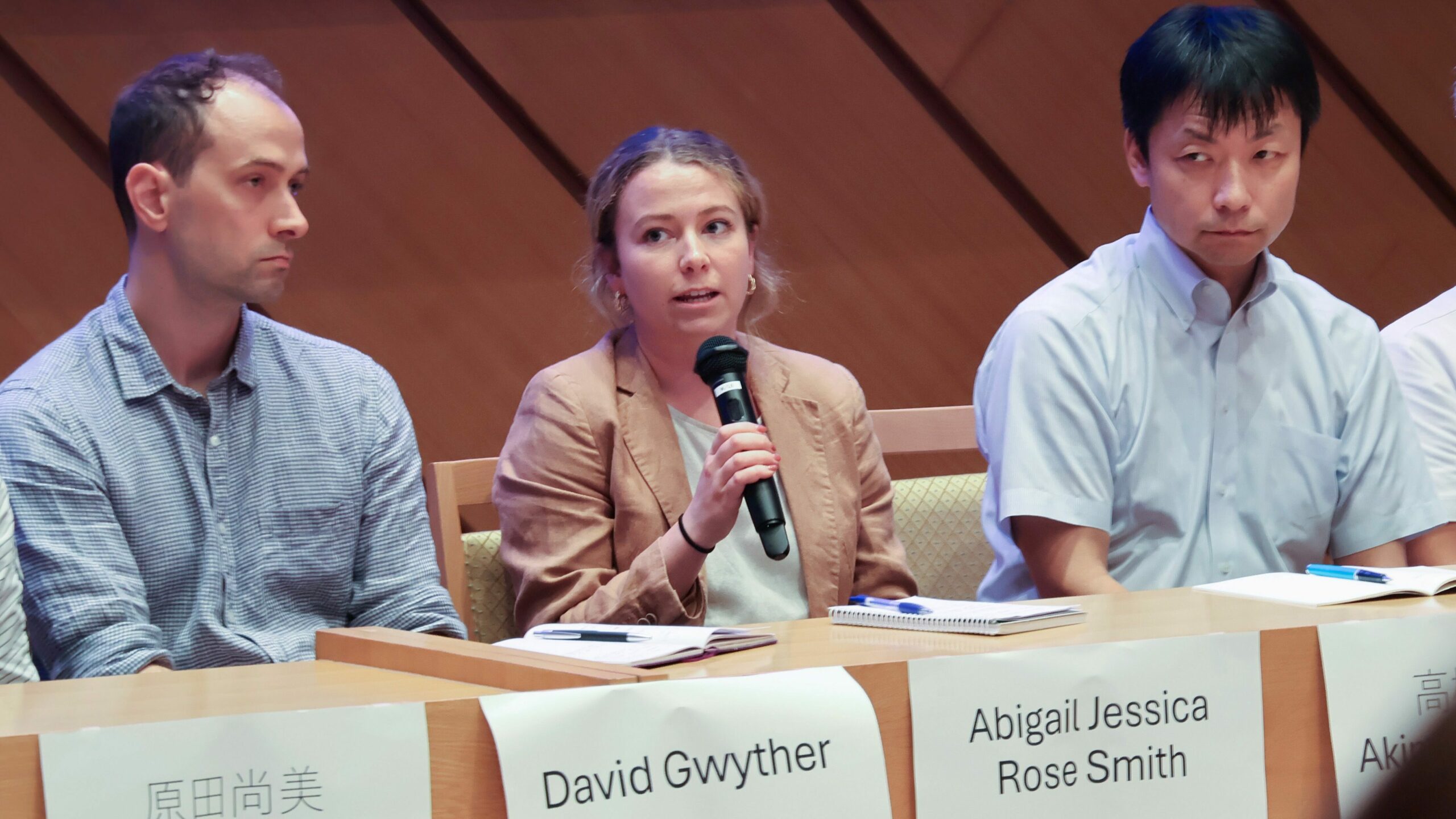
Dr Smith told the symposium that early in her career, she benefited greatly from an international research internship onboard Japanese Training Research Vessel Umitaka-maru, which was excellent for learning krill sampling techniques.
“The International Internship gave me opportunities to develop fundamental skills in sampling biological and oceanographic variables.”
“This was a highly valuable cultural and scientific experience which I believe is so important for Early Career Researchers (ECRs).”
“I hope we can continue to support ECR’s in Australia and Japan with such exchanges into the future”, she said.
Dr Alex Fraser is a sea-ice remote sensing scientist with the Australian Antarctic Program Partnership at the Institute for Marine and Antarctic Studies in the University of Tasmania.
He said his experience points to the benefits of collaboration between Japan and Australia for early-career researchers in three key ways:
- Voyage cross-participation on Australian and Japanese research ships, where the scientific relationships forged at sea can launch careers;
- Japan Society for Promotion of Science (JSPS) fellowships, which facilitate scientific exchanges of up to two years between Australia and Japan; and
- a sea-ice field training course hosted at the frozen Lake Saroma, in northern Hokkaido.
“An entire generation of Australian sea ice scientists have been trained at this winter school, including myself, and we are very grateful for this collaboration.”
“The JSPS fellowships are a fantastic way to broaden collaborative networks, especially for young scientists. The scientific relationships that we initiate in these fellowships often last for our entire career, with the collaborations enabling more productive use of our limited resources”, said Dr Fraser.
He also noted that Japan is “stepping up” when the US is “stepping back” from providing key satellite data for monitoring sea ice coverage and conditions, which are crucial for many Antarctic scientists including early career researchers.
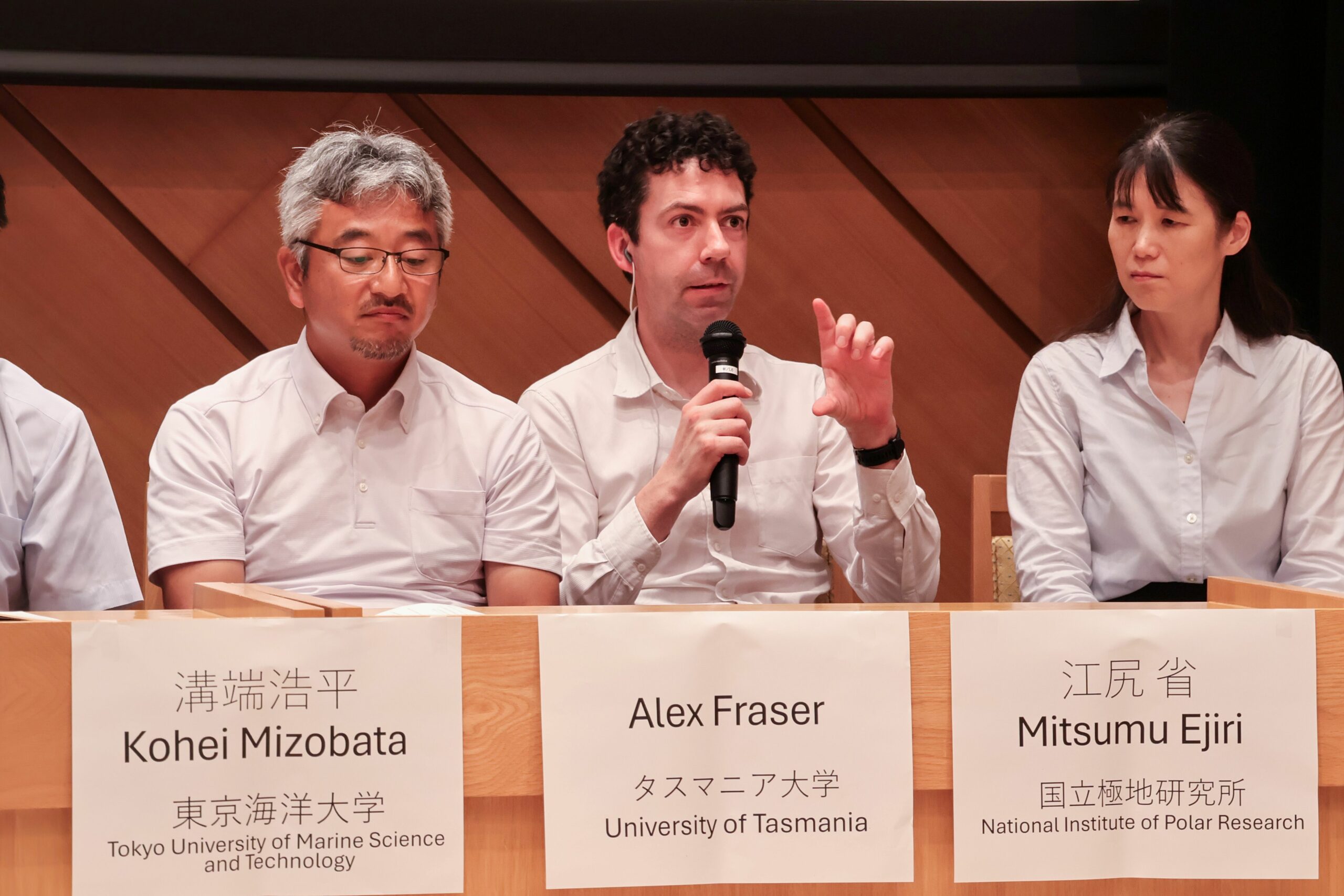
The public symposium was hosted by the Science Council of Japan; National Institute of Polar Research; Australian Antarctic Division; Australian Antarctic Program Partnership; Australian Embassy Tokyo; Japanese Ministry of Education Culture, Sports, Science and Technology; Japan Society for the Promotion of Science; and Antarctic Tasmania of the Tasmanian Government. The symposium preceded the fifth ‘Australia–Japan Workshop on Antarctic Science’ on 29-30 July, funded by the Department of Foreign Affairs and Trade (DFAT) through a grant to the Australian Antarctic Program Partnership (AAPP) from the Australia-Japan Foundation (A-JF).
